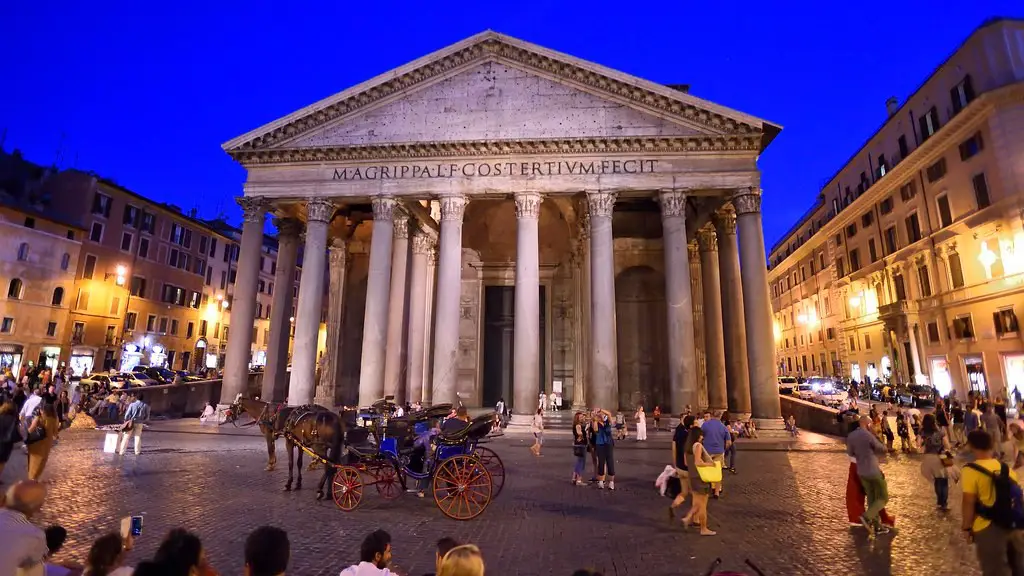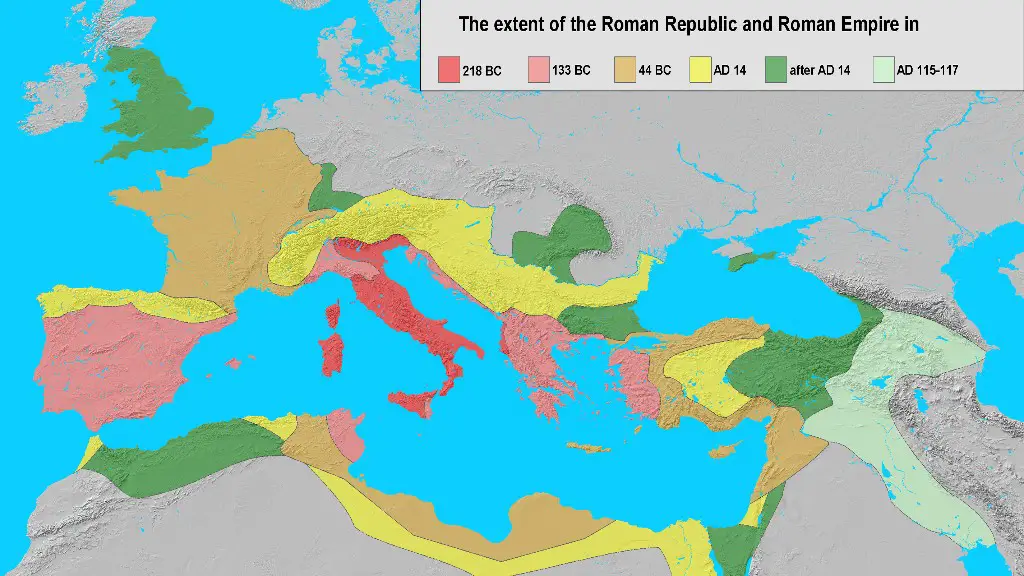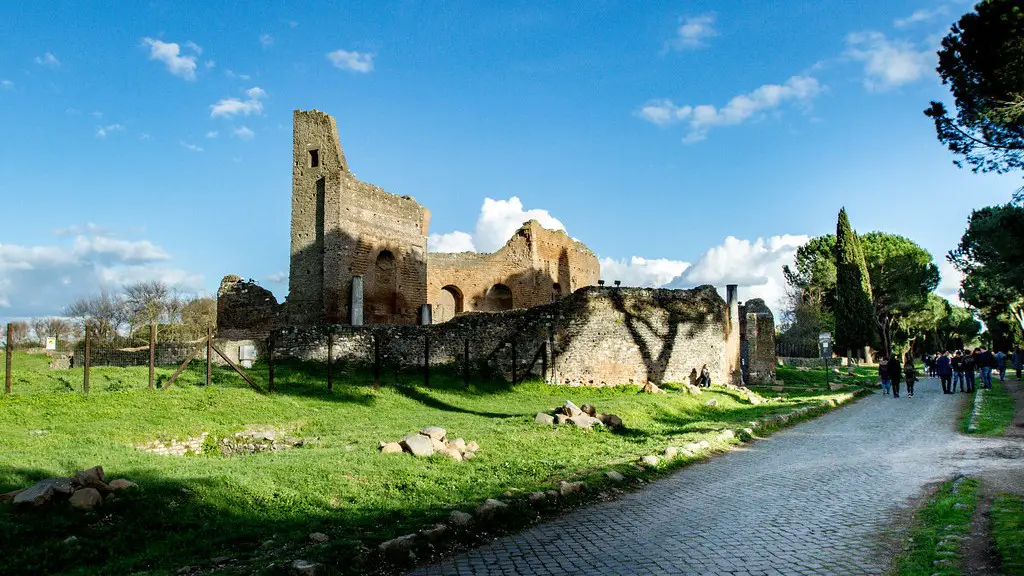Ancient Rome & Its Cuisine
The food of the ancient Romans was vastly different from what we eat today. Ancient Rome was a sprawling empire, yet its inhabitants had a peculiar diet that revolved around several main ingredients.
Fruit, vegetables and grains were staples of the Roman diet. It is believed that the introduction of new fruit, vegetables and grains during the multiple military campaigns of the Romans was key to improving their cuisine and nutrition.
Cheese and olives were extremely popular with the ancient Romans. The Romans ate their cheese with fruit, herbs or honey and olive oil was used as a condiment and to make sauces. Fava beans were also eaten and seasoned with spices and herbs. Bread was a staple of many Roman dishes, with different varieties of wheat being imported from Egypt, Syria, South Italy and elsewhere.
The staple animal protein of the Roman diet was pork. Fish, shellfish, goat, lamb, cattle and poultry were also consumed. Pork was usually roasted on a bed of charcoal, seasoned with herbs and spices. Fish was usually boiled, marinated or fried.
Eggs were eaten, mostly boiled, and remained a mainstay of Roman cuisine until the middle ages. Offal and a variety of innards from animals such as intestines, livers and kidneys were also eaten in the form of sausages and puddings.
The Romans also ate a variety of condiments and sauces such as garlic, olive oil, honey, vinegar and salt. Seasonings such as pepper, coriander, and nutmeg were also used to give their dishes a unique flavor.
The Romans combined these flavors with a variety of cooking techniques such as roasting, baking, boiling and frying in order to create the unique flavors of their cuisine. The Romans also enjoyed a wide variety of desserts, such as cakes, cookies, fruit sauces, and honey-based sweets.
Wine, Bread & Banquets
Apart from food, the ancient Romans also enjoyed a variety of drinks such as wine and beer. Wine was consumed not only at meals, but also to celebrate special occasions. Bread was also an important part of their diet and was eaten with almost every meal. It was usually made from barley, spelt or wheat flour.
Moreover, the Romans also frequently feasted at banquets. These banquets featured extravagant dishes and dishes such as stuffed animals and exotic fruits. They also enjoyed lavish entertainment such as music, plays and poetry readings.
At the end of a banquet, the host often gave guests small gifts. These gifts were mainly food items such as apples, honey, almonds and raisins, nut cakes and nuts. It was also customary to offer guests gifts of cooked vegetables or game animals, stewed in wine and seasoned with spices.
The Romans also enjoyed exotic food and spices from countries such as India and China. Spices such as pepper and ginger, for example, were used to give their dishes a unique flavor.
Desserts such as honey-covered nuts, candied fruits and cakes were also enjoyed at the end of banquets. Honey was a popular sweetener and flavoring agent, and a variety of sauces and custards were also served.
Legacy of Ancient Rome Cuisine
The legacy of ancient Roman cuisine has had a significant influence on modern Italian and French cuisine. In particular, Italian pasta dishes such as spaghetti and lasagna are derived from Roman dishes such as itrioni and lagana.
Moreover, the emphasis on local ingredients and seasonality of Roman cuisine is still seen in modern Italian cuisine. Dishes such as pizza, pasta and risotto are all based on traditional Roman recipes.
In addition, the French have borrowed many culinary techniques from the Romans, such as the cooking of complex sauces and the recipes for stewed dishes. The French have also adopted a variety of Roman recipes, such as the popular Caesar salad.
Furthermore, the Romans are credited with introducing a wide range of spices into the culinary world, such as pepper and ginger. These spices have been integral to the development of a variety of cuisines, especially Indian and Southeast Asian.
Finally, despite its long history, ancient Roman cuisine has had a lasting impact on the way we eat today. From their emphasis on seasonality and local ingredients, to their creative use of spices, the Romans taught us a great deal about the art of cooking.
Recipes & Influences
Most Roman recipes have been lost over the centuries, however, their legacy can still be found in many modern dishes. Today, chefs around the world have revived and adapted Roman recipes to create dishes with a distinctly Roman flavor.
The ancient Romans were quite cosmopolitan in their tastes, and the cuisine was heavily influenced by other cultures. Greek, Egyptian, Turkish, and Middle Eastern cuisines all made their way into the kitchens of Rome. For example, the use of olive oil, lemon juice, and herbs is thought to have come from the Greeks.
Moreover, the Romans were also highly influenced by Asian flavors, particularly those of India and the Middle East. They used exotic spices such as saffron, cloves, nutmeg, cardamom, and ginger in their dishes, and their influence can still be seen in modern Italian, French and Spanish cuisines.
The Romans also introduced several cooking techniques that are still used today. They are credited with the invention of deep-frying, and their techniques for slow-cooking, boiling and roasting are still used in modern cuisine.
The ancient Romans also invented a number of condiments and sauces, such as garum and liquamen. Garum is a fermented fish sauce, and liquamen is a thick, fish-based sauce, similar to the modern Worcestershire sauce.
Finally, the Romans also invented a variety of desserts, such as custards, cakes and sweet pastries. These desserts are still popular today, and can be found in many modern restaurants.
Conclusion
Ancient Roman cuisine was complex and varied, and it had a profound influence on modern European and Mediterranean cuisines. It was heavily influenced by other cultures, such as the Greeks and Middle Easterners, and featured a variety of flavors, ingredients and cooking techniques.
Today, chefs around the world are still inspired by the recipes of ancient Rome. From its use of spices, to its creative use of ingredients, to its emphasis on seasonality and local produce, the legacy of Roman cuisine continues to inspire new generations of cooks and diners.





